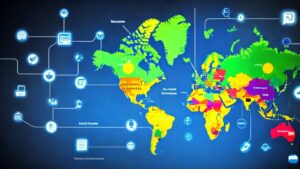The art of storytelling has long been a potent instrument of influence, utilized since ancient times to inspire, teach, and connect. In political and marketing campaigns, storytelling transcends the mere communication of facts or policy details; it taps into emotions, personalizes abstract concepts, and fosters a sense of shared identity and purpose. So, join us as we explore the transformative power of storytelling in shaping and driving successful campaigns.
Humanizing the Message: The Emotional Impact of Stories
Stories have the unique ability to humanize messages, making them more relatable and emotionally resonant. In political campaigns, personal anecdotes or narratives can transform an abstract policy into a tangible issue with real-world implications. Similarly, in marketing, storytelling can shift the focus from a product’s features to the experiences or emotions associated with it, creating a more personal and compelling message.
Building Connections: Stories as a Unifying Force
A powerful story can serve as a unifying force, creating a sense of shared identity or purpose among diverse audiences. In political campaigns, stories of shared struggles or aspirations can bridge ideological divides, fostering a sense of common ground. In marketing, storytelling can create a sense of community around a brand or product, turning customers into advocates.
Inspiring Action: Stories as a Motivational Tool
Perhaps the most potent aspect of storytelling is its capacity to inspire action. A well-crafted narrative can evoke powerful emotions that drive individuals to act, whether it’s casting a vote, supporting a cause, or purchasing a product. By connecting the action with a compelling narrative, campaigns can motivate audiences in a way that facts or figures alone cannot.
Ethical Considerations: The Responsibility of Storytelling
While storytelling is a powerful tool, it also carries significant ethical responsibilities. It’s essential to ensure that stories are authentic, respectful, and avoid manipulation. This involves not only being truthful but also being mindful of the potential impacts and interpretations of the narratives we craft.
Moral of the Story
Storytelling is a formidable force in both political and marketing campaigns. It humanizes messages, builds connections, and inspires action. However, with this power comes responsibility. As we harness the power of storytelling, we must also commit to ethical practices, ensuring that our narratives are not only compelling but also respectful and authentic.
In the modern era, where information overload is commonplace, stories stand out. They cut through the noise and resonate with audiences on a deeply personal level. By understanding and leveraging the power of storytelling, campaigns can create a deeper impact, foster stronger connections, and inspire meaningful action. The power of storytelling in campaigns is not just about persuading; it’s about connecting, inspiring, and driving change.




